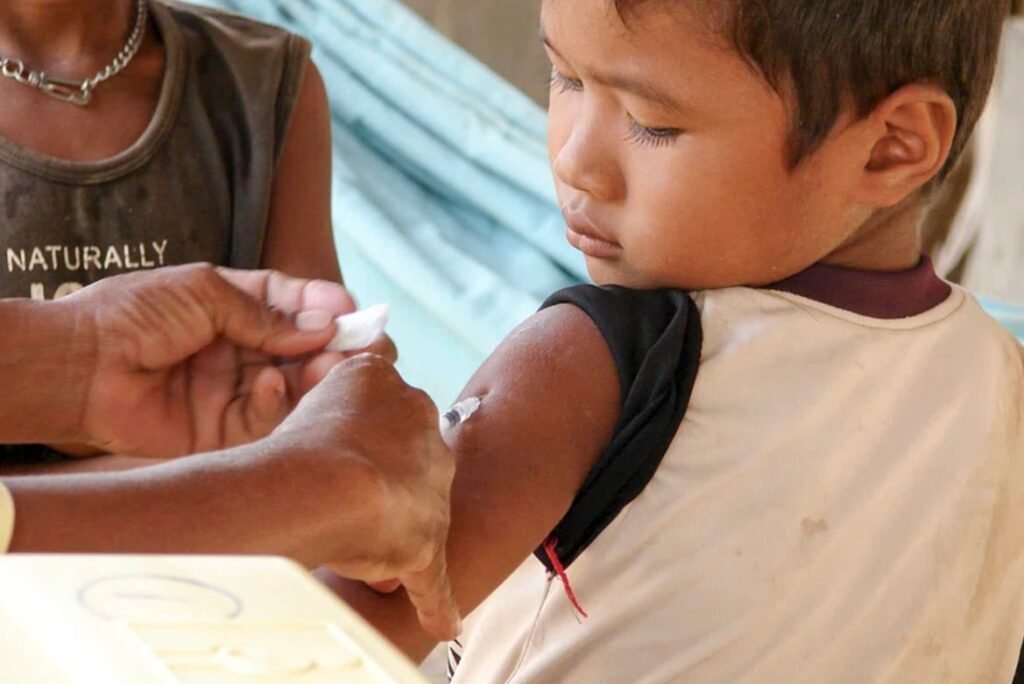The CDC released new data on Thursday showing that the percentage of kindergarteners who received their state-required vaccines for measles and other diseases declined in the 2022-2023 school year, while the rate of vaccine exemptions reached the highest level ever reported in the US.
According to the CDC report, coverage for four key vaccines — the measles, mumps, and rubella (MMR) vaccine; diphtheria, tetanus, and acellular pertussis (DTaP) vaccine; poliovirus vaccine; and varicella vaccine for chickenpox — declined in a majority of states for the 2022-2023 school year. The national MMR coverage of about 93% was below the federal target of 95%, which is considered the minimum level needed to prevent outbreaks of measles and other contagious diseases. The report said that about 250,000 kindergarteners were at risk for measles infection due to low vaccination rates.

The report also noted that the decline in vaccine coverage was not due to the COVID-19 pandemic, which disrupted routine immunization services in many countries. The CDC said that the data showed a “continuation of a downward trend” that began in the 2019-2020 school year, before the pandemic.
Vaccine Exemptions at Record High
The report also revealed that the percentage of kindergarteners who were exempt from one or more required vaccines increased to 3% for the 2022-2023 school year, from 2.6% in 2021-2022. This was the highest exemption rate ever reported in the US, and most of the exemptions were not for medical reasons, but for personal or religious beliefs. The report said that exemptions increased in 40 states and Washington, DC, and that 10 states reported exemptions for at least one vaccine that exceeded 5% of kindergarteners. Exemptions beyond 5% limit the level of vaccination coverage possible, the researchers wrote, and raise the risk of an outbreak of vaccine-preventable diseases.
The report also said that about 4% of kindergarteners nationwide were not fully vaccinated with MMR or formally exempt from getting it, but were allowed to attend school during a grace period for provisional enrollment. The CDC urged immunization programs, schools, and providers to make sure that children are fully vaccinated before school entry, or before provisional enrollment periods expire.
Implications for Public Health
The CDC report highlighted the importance of maintaining high vaccination coverage among children to protect them and the community from serious and potentially fatal diseases. The report said that lower levels of vaccine coverage could lead to outbreaks of measles and other diseases, especially in areas where clusters of under-vaccinated children exist. The report also warned that vaccine hesitancy and misinformation could undermine the efforts to achieve and sustain high vaccination coverage.
The report recommended that public health officials, health care providers, and educators work together to promote the benefits and safety of vaccines, and to address the concerns and barriers that parents may have regarding vaccination. The report also suggested that state and local authorities implement policies and strategies to increase vaccine access and uptake, such as eliminating or restricting nonmedical exemptions, enforcing school vaccination requirements, and providing reminders and incentives for vaccination.
